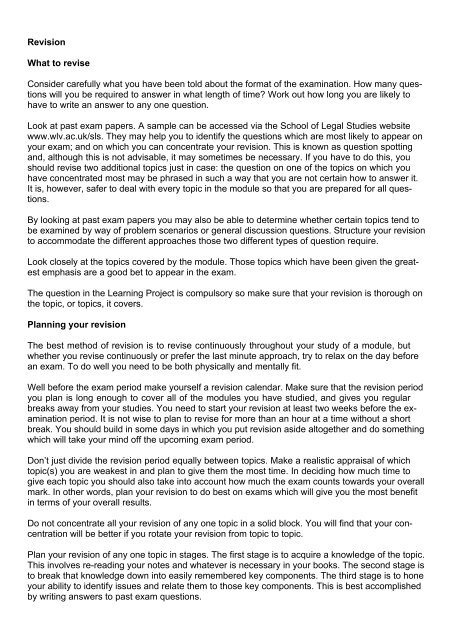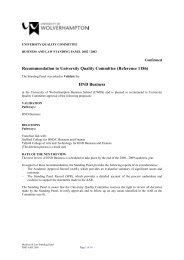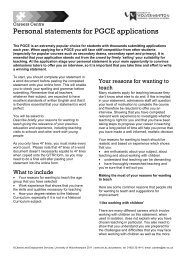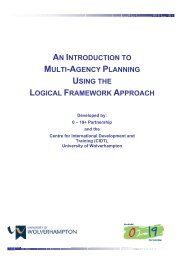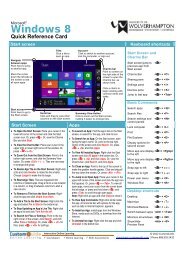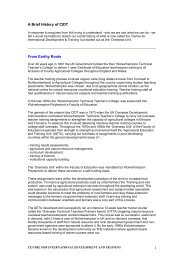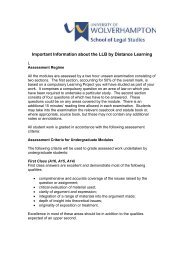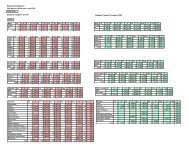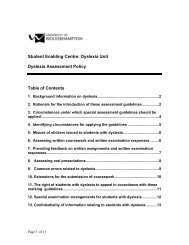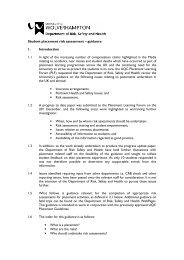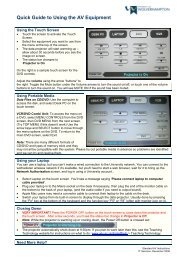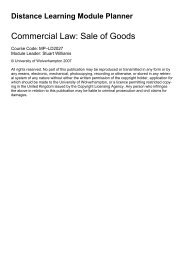Company Law 1 - University of Wolverhampton
Company Law 1 - University of Wolverhampton
Company Law 1 - University of Wolverhampton
- No tags were found...
Create successful ePaper yourself
Turn your PDF publications into a flip-book with our unique Google optimized e-Paper software.
RevisionWhat to reviseConsider carefully what you have been told about the format <strong>of</strong> the examination. How many questionswill you be required to answer in what length <strong>of</strong> time? Work out how long you are likely tohave to write an answer to any one question.Look at past exam papers. A sample can be accessed via the School <strong>of</strong> Legal Studies websitewww.wlv.ac.uk/sls. They may help you to identify the questions which are most likely to appear onyour exam; and on which you can concentrate your revision. This is known as question spottingand, although this is not advisable, it may sometimes be necessary. If you have to do this, youshould revise two additional topics just in case: the question on one <strong>of</strong> the topics on which youhave concentrated most may be phrased in such a way that you are not certain how to answer it.It is, however, safer to deal with every topic in the module so that you are prepared for all questions.By looking at past exam papers you may also be able to determine whether certain topics tend tobe examined by way <strong>of</strong> problem scenarios or general discussion questions. Structure your revisionto accommodate the different approaches those two different types <strong>of</strong> question require.Look closely at the topics covered by the module. Those topics which have been given the greatestemphasis are a good bet to appear in the exam.The question in the Learning Project is compulsory so make sure that your revision is thorough onthe topic, or topics, it covers.Planning your revisionThe best method <strong>of</strong> revision is to revise continuously throughout your study <strong>of</strong> a module, butwhether you revise continuously or prefer the last minute approach, try to relax on the day beforean exam. To do well you need to be both physically and mentally fit.Well before the exam period make yourself a revision calendar. Make sure that the revision periodyou plan is long enough to cover all <strong>of</strong> the modules you have studied, and gives you regularbreaks away from your studies. You need to start your revision at least two weeks before the examinationperiod. It is not wise to plan to revise for more than an hour at a time without a shortbreak. You should build in some days in which you put revision aside altogether and do somethingwhich will take your mind <strong>of</strong>f the upcoming exam period.Don’t just divide the revision period equally between topics. Make a realistic appraisal <strong>of</strong> whichtopic(s) you are weakest in and plan to give them the most time. In deciding how much time togive each topic you should also take into account how much the exam counts towards your overallmark. In other words, plan your revision to do best on exams which will give you the most benefitin terms <strong>of</strong> your overall results.Do not concentrate all your revision <strong>of</strong> any one topic in a solid block. You will find that your concentrationwill be better if you rotate your revision from topic to topic.Plan your revision <strong>of</strong> any one topic in stages. The first stage is to acquire a knowledge <strong>of</strong> the topic.This involves re-reading your notes and whatever is necessary in your books. The second stage isto break that knowledge down into easily remembered key components. The third stage is to honeyour ability to identify issues and relate them to those key components. This is best accomplishedby writing answers to past exam questions.


